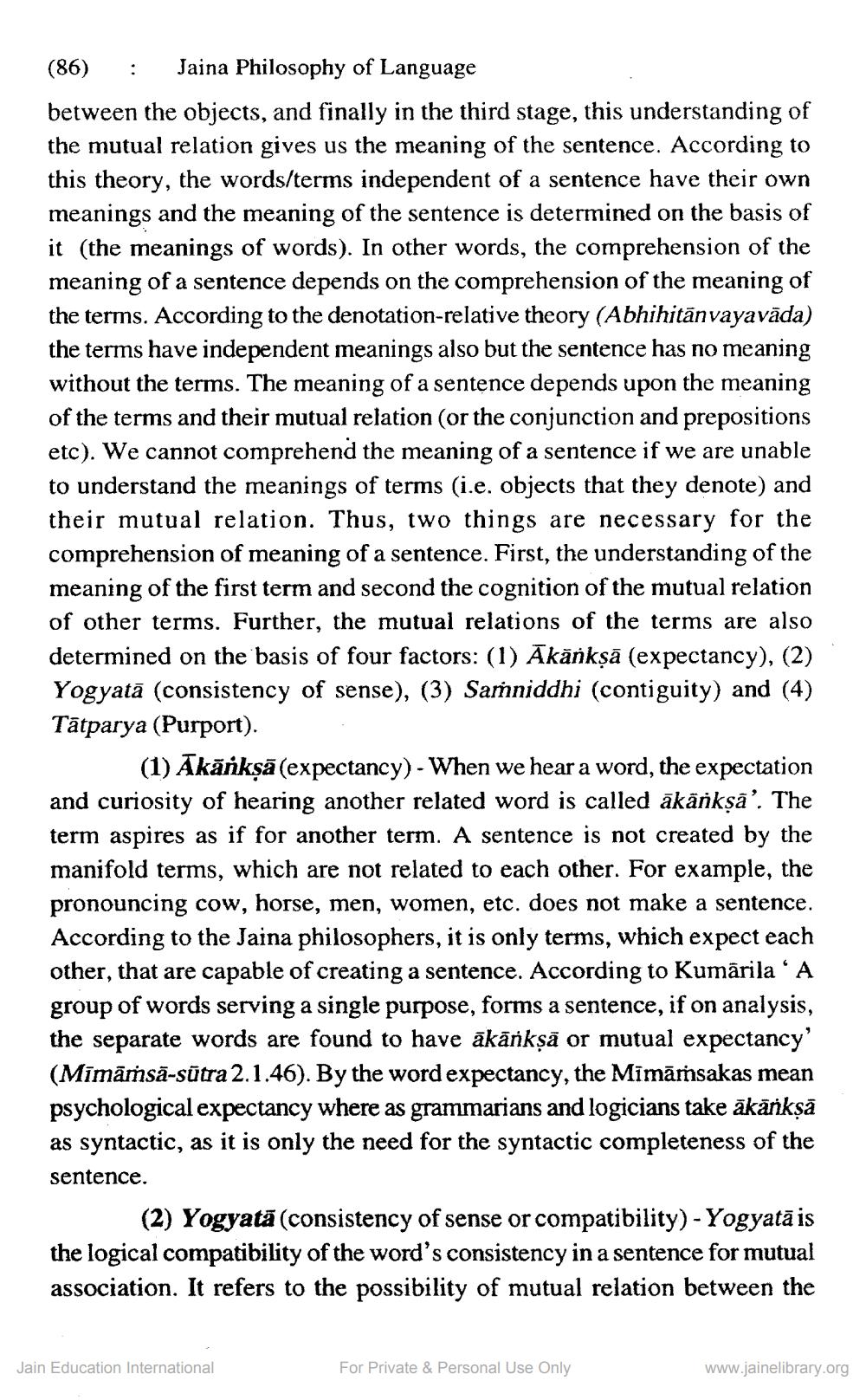________________
(86) : Jaina Philosophy of Language between the objects, and finally in the third stage, this understanding of the mutual relation gives us the meaning of the sentence. According to this theory, the words/terms independent of a sentence have their own meanings and the meaning of the sentence is determined on the basis of it (the meanings of words). In other words, the comprehension of the meaning of a sentence depends on the comprehension of the meaning of the terms. According to the denotation-relative theory (Abhihitānvayavāda) the terms have independent meanings also but the sentence has no meaning without the terms. The meaning of a sentence depends upon the meaning of the terms and their mutual relation (or the conjunction and prepositions etc). We cannot comprehend the meaning of a sentence if we are unable to understand the meanings of terms (i.e. objects that they denote) and their mutual relation. Thus, two things are necessary for the comprehension of meaning of a sentence. First, the understanding of the meaning of the first term and second the cognition of the mutual relation of other terms. Further, the mutual relations of the terms are also determined on the basis of four factors: (1) Ākānkṣā (expectancy), (2) Yogyatā (consistency of sense), (3) Saṁniddhi (contiguity) and (4) Tātparya (Purport).
(1) Akāňkşā (expectancy) - When we hear a word, the expectation and curiosity of hearing another related word is called ākānkşa’. The term aspires as if for another term. A sentence is not created by the manifold terms, which are not related to each other. For example, the pronouncing cow, horse, men, women, etc. does not make a sentence. According to the Jaina philosophers, it is only terms, which expect each other, that are capable of creating a sentence. According to Kumārila ' A group of words serving a single purpose, forms a sentence, if on analysis, the separate words are found to have ākānksā or mutual expectancy' (Mimāṁsā-sūtra 2.1.46). By the word expectancy, the Mīmārsakas mean psychological expectancy where as grammarians and logicians take ākārikṣā as syntactic, as it is only the need for the syntactic completeness of the sentence.
(2) Yogyatā (consistency of sense or compatibility) - Yogyatā is the logical compatibility of the word's consistency in a sentence for mutual association. It refers to the possibility of mutual relation between the
Jain Education International
For Private & Personal Use Only
www.jainelibrary.org




